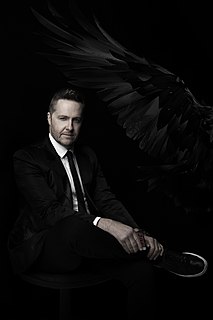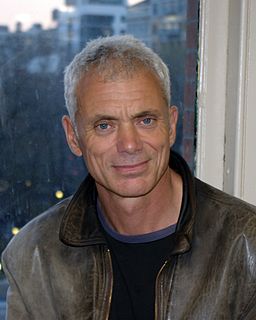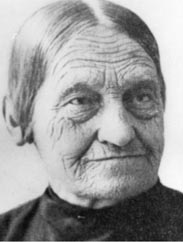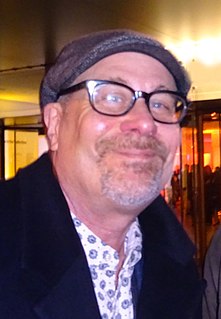A Quote by Jim Wallis
Our calling is not only to pull people out of the river, but to go upstream to find out what or who is pushing them in.
Related Quotes
It didn't matter in the end how old they had been, or that they were girls, but only that we had loved them, and that they hadn't heard us calling, still do not hear us, up here in the tree house with our thinning hair and soft bellies, calling them out of those rooms where they went to be alone for all time, alone in suicide, which is deeper than death, and where we will never find the pieces to put them back together.
I drove off, with my friends watching me go, all of them grouped on Lissa's hood. As I pulled onto the road, I glanced into the rearview and saw them: they were waving, hands moving through the air, their voices loud, calling out after me. The square of that mirror was like a frame, holding this picture of them saying good-bye, pushing me forward, before shifting gently out of sight, inch by fluid inch, as I turned away.
I have seen salmon swimming upstream to spawn even with their eyes pecked out. Even as they are dying, as their flesh is falling away from their spines, I have seen salmon fighting to protect their nests. I have seen them push up creeks so small that they rammed themselves across the gravel. I have seen them swim upstream with huge chunks bitten out of their bodies by bears. Salmon are incredibly driven to spawn. They will not give up. This gives me hope.
If they were going to go to London or to the UK to find out how health care is, national health care doesn't work, all they have to do is go to the Soviet Union to find out how communism and socialism didn't work, but it hasn't dissuaded them from trying it here because they think the only thing that hasn't happened is the right people haven't tried it with the proper funding.
It's possible to think of photography as an act of editing, a matter of where you put your rectangle pull it out or take it away. Sometimes people ask me about films, cameras and development times in order to find out how to do landscape photography. The first thing I do in landscape photography is go out there and talk to the land - form a relationship, ask permission, it's not about going out there like some paparazzi with a Leica and snapping a few pictures, before running off to print them.
Watching old movies is like spending an evening with those people next door. They bore us, and we wouldn't go out of our way to see them; we drop in on them because they're so close. If it took some effort to see old movies, we might try to find out which were the good ones, and if people saw only the good ones maybe they would still respect old movies. As it is, people sit and watch movies that audiences walked out on thirty years ago. Like Lot's wife, we are tempted to take another look, attracted not by evil but by something that seems much more shameful -- our own innocence.






































